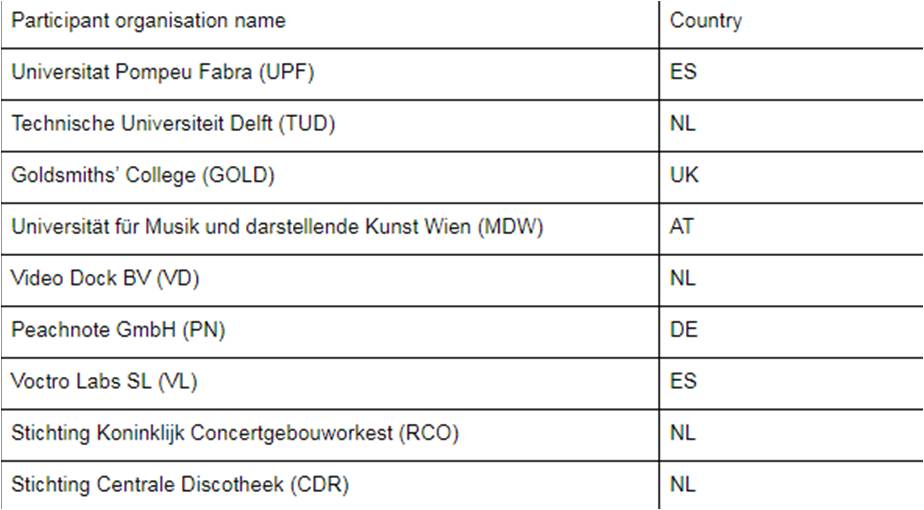TROMPA, a project that aims to open musical cultural heritage to the public domain
It has kicked off this May within the European H2020 programme and is coordinated by Emilia Gómez, head of the Music Information Research Laboratory. In addition, it involves Davinia Hernández-Leo, head of the Research Group on Interactive and Distributed Technologies for Education (TIDE) and the spin-off Voctrolabs.
Classical music is one of the greatest treasures of Europe’s cultural heritage and it is continuously being performed and revitalized through musical performances. Most of the classical repertoire is in the public domain; online repositories provided by the community contain a massive number of scores and recordings available to scholars and musicians. However, it is often not possible to gain a complete vision of the whole wealth of our musical cultural heritage.
On 14 and 15 May on UPF’s Poblenou campus the first meeting of the TROMPA (Towards Public Richer Online Music Public-domain Archives) project was held, funded by the EU’s H2020 programme and coordinated by Emilia Gómez, head of the Music Information Research Laboratory (MIRLab), involving the participation of Davinia Hernández-Leo, head of the Research Group on Interactive and Distributed Technologies for Education (TIDE), both groups of UPF’s Department of Information and Communication Technologies (DTIC), as well as Voctrolabs, a UPF spin-off working on improving singing processing technologies.
Today, technology offers ways to enrich and contextualize this repertoire so that users can understand and appreciate it better. The TROMPA project aims to create public domain music files that include scores, recordings (audio, video) and descriptions of the music. TROMPA combines artificial intelligence (description and music generation technologies developed by the research group coordinated by Emilia Gómez) and human intelligence, through a series of applications that serve to involve music lovers in the generation of musical data. In particular, “we will work on applications addressing singers of choral music and the people who like to listen to music but who don’t have knowledge of music theory”, explained Emilia Gómez.
The TROMPA project aims to democratize our musical heritage and put it at the disposal of the public via a user-centred co-creation configuration. To analyse and link data from music to scale, the project will employ and improve the most advanced technology. Music-loving citizens will be able to collaborate with technology, providing their comments on algorithmic results and annotating the data in accordance with their personal knowledge. This is precisely the area of expertise in which the TIDE research group, directed by Davinia Hernández-Leo, will be participating.
TROMPA follows a philosophy of open innovation. All of the resulting knowledge will be re-released to the public for re-use. Through the consortium and the people who associate with the project, it will be possible to reach a global audience on an unprecedented scale, with possible outreach activities for millions of users.
TROMPA Project consortium (table)







